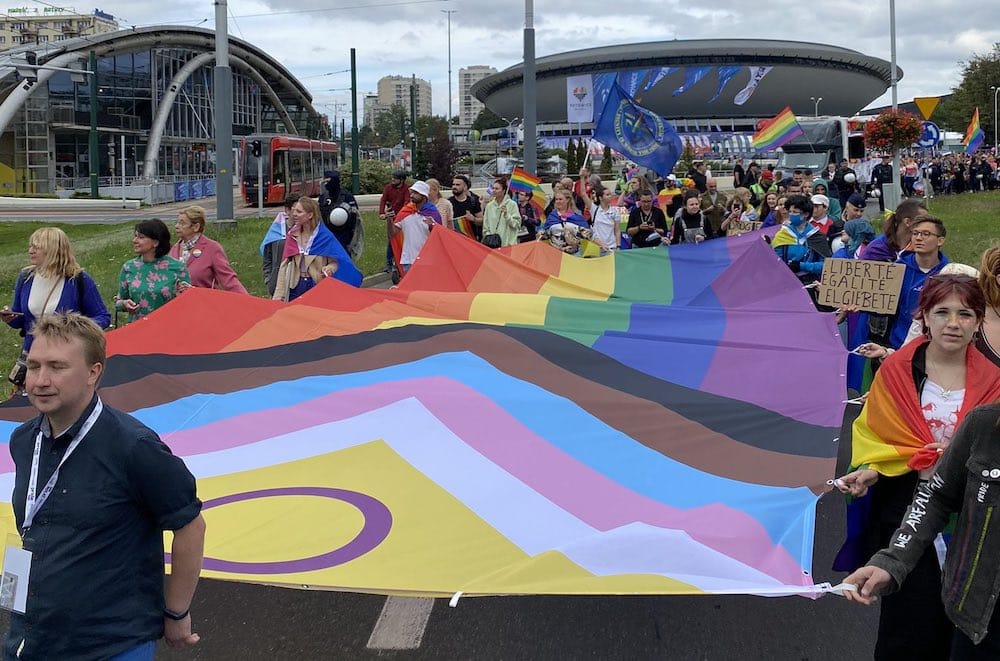The Pride March in the city of Katowice, Poland. (Twitter/ milosc_)
Two Pride marches in Poland have gone ahead peacefully after years of violence, with participants crediting their activism for “changing reality”.
The Pride event in the city of Katowice, Poland, took place for the sixth year on Saturday (3 September), and drew around 4,000 participants.
The march, held jointly with the Ukrainian city of Odesa in solidarity, was threatened with anti-LGBTQ+ protests by the anti-LGBTQ+, anti-abortion group Fundacja Pro. The mayor of Katowice initially banned the group from attending the Pride march to protect “safety and public order”.
Although the mayor’s directive was overturned by a court, just a few members of Fundacja Pro turned up at the event, and it went ahead peacefully, despite the group’s banners equating the LGBTQ+ community with paedophilia.
Katowice Pride organiser Przemysław Walas told Notes From Poland that the march was “an opportunity for the community to feel safe and comfortable”, and to remind “our city, the region, and all of Poland that we are here, that we will not disappear because someone has a problem accepting that the world is not black and white”.
Marsz Równości w Lublinie wystartował dumnie idąc lubelskimi ulicami. Miłość! Równość! Akceptacja! pic.twitter.com/GPISw1JMSt
— Kampania Przeciw Homofobii (@KPH_official) September 3, 2022
In a similar turn of events, a Pride march in the city of Lublin went ahead without violence, despite having been repeatedly targeted over the last few years.
Over the last few years, counter-protesters have hurled lit flares into the march, and violence has erupted as far-right protesters hurled eggs and bottles into the crowd, while in 2019, a couple was arrested for bringing explosives to the march.
But on Saturday, around 1,000 people attended the event, and although there was a heavy police presence, violence was avoided.
One participant said that the increasing anti-LGBTQ+ hostility from Poland’s government has, in fact, backfired. By bringing attention the the queer community, politicians have helped Polish people “find out that this is not some imaginary gay who spreads diseases, but actually the person who we buy bread from in the morning, our neighbour, or our colleague at work”.
She added: “There is an absolutely huge change compared to previous years.
“We are extremely happy that our marches have changed our reality.”
